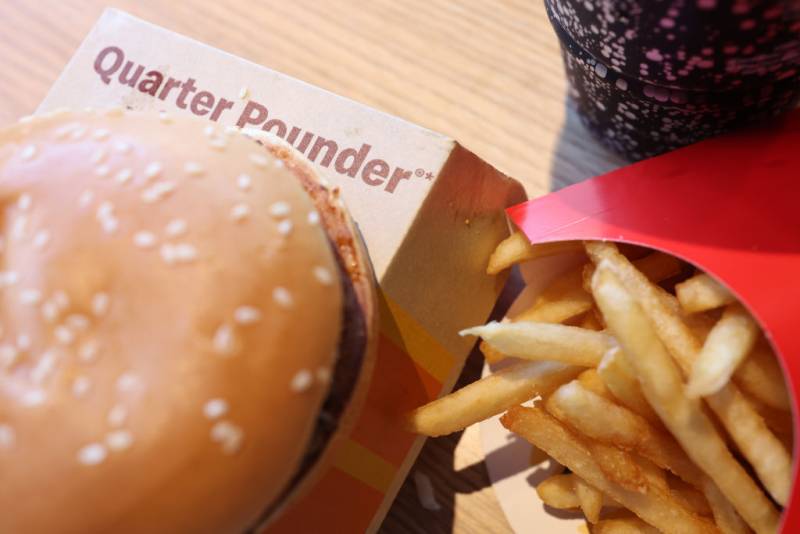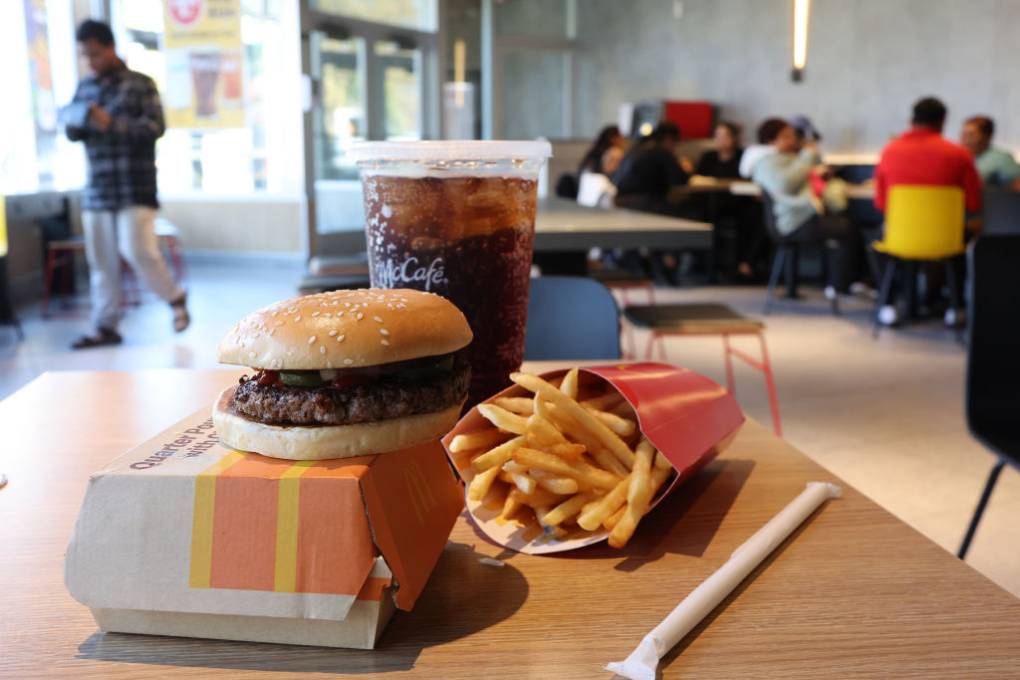The new cases reported Friday were a sharp increase from the original tally of 49 in 10 states. Most illnesses were reported in Colorado, with 26 cases. At least 13 people were sickened in Montana, 11 in Nebraska, 5 each in New Mexico and Utah, 4 each in Missouri and Wyoming, two in Michigan and one each in Iowa, Kansas, Oregon, Wisconsin and Washington, the CDC reported.
McDonald’s said Friday it didn’t pull the Quarter Pounder from any additional restaurants due to the increase in the CDC’s illness count. The company noted that some cases in states outside the original region were tied to travel.
The CDC said some people who got sick reported traveling to other states before their symptoms started. At least three people said they ate at McDonald’s during their travel. Illnesses were reported between Sept. 27 and Oct. 11.
Taylor Farms notified its customers directly about the onion recall but did not tell the public about it, an FDA official said. Companies often issue press releases and the FDA sends public notifications for recalls, but they are not required.

While it remains unclear if the recalled onions were the source of the outbreak, several other fast-food restaurants — including Taco Bell, Pizza Hut, KFC and Burger King — pulled onions from some menus in certain areas this week.
Restaurant Brands International, which owns Burger King, said that 5% of its restaurants use whole onions distributed by Taylor Farms’ Colorado facility. They are washed, peeled and sliced by employees.
Even though it wasn’t contacted by health officials and it had no indications of illness, Restaurant Brands said it asked the restaurants that received onions from the Colorado facility to get rid of them.
The outbreak involves infections with E. coli 0157:H7, a type of bacteria that produces a dangerous toxin. It causes about 74,000 infections in the U.S. annually, leading to more than 2,000 hospitalizations and 61 deaths each year, according to CDC.
People sickened in the outbreak have already moved to sue McDonald’s, according to court records. According to her lawsuit, Clarissa DeBock ate food from a local McDonald’s in Nebraska on Sept. 18, fell ill on Sept. 23 and sought emergency care two days later before she was diagnosed with an E. coli infection.
Symptoms of E. coli poisoning can occur quickly, within a day or two of eating contaminated food. They typically include fever, vomiting, diarrhea or bloody diarrhea and signs of dehydration — little or no peeing, increased thirst and dizziness. The infection is especially dangerous for children younger than 5, people who are elderly, pregnant or who have weakened immune systems.
AP business reporter Dee-Ann Durbin contributed reporting from Detroit.


